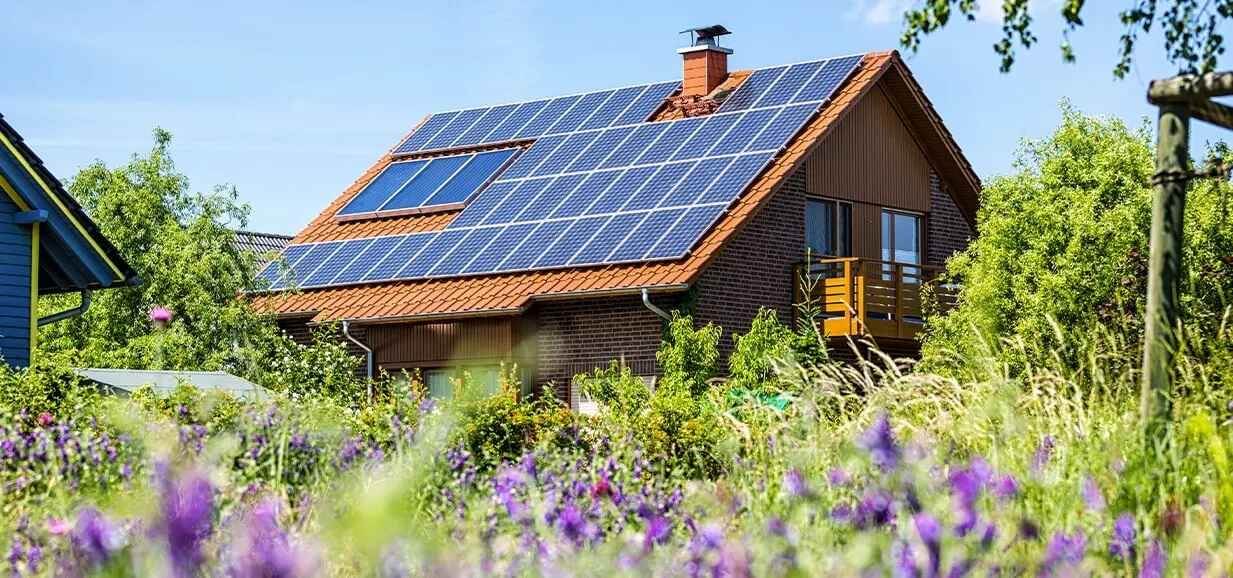
It’s easy to explain how convenient PV panels are by highlighting their endurance: it can pay back any initial investment, not mentioning how significantly it cuts down the carbon footprint of your house in the long-term. In addition, to really appreciate the convenience resulting from a PV system, you should focus on the possibilities offered by energy communities.
PV panels lifespan makes their installation really convenient. Normally, a PV system is guaranteed for 25 years of “useful life”: This longevity is not comparable to any other power generator, neither solar thermal system, which has a lifespan of 15 years. A long lifespan allows the system to pay for itself, both in terms of costs and carbon footprint, by supporting a virtuous circle of clean and sustainable energy generation.
The plant placed on Volcano Island has been the first demonstration of PV durability. It was installed almost 30 years ago, it is still working and supplying the electricity needs of the island. After 20 years from its activation, its production decreased only by 6%.
We must specify what we mean by duration: solar panels can generate energy for a very long time, but the duration we refer to is the “useful life”, meaning the period during which it is convenient to let the system work, namely the timeframe when the generated energy and the related saving cover the operating and maintenance costs.
Which factors affect solar panels durability?
Duration of panels and proper functioning are affected by several factors:
- First of all, the absence of mechanical parts reduces the average daily wear. The transmission of energy through silicon of cadmium telluride is a process where the decay of materials is minimal and quantifiable: each photovoltaic cell has an annual power decrease of 1%, 0.7% in case of polysilicon and 1,5% in case of thin film solar panels.
- The level of ordinary maintenance surely weights on the deterioration of panels. Dirt settled on photovoltaic modules reduces both their efficiency and duration.
- The geographic area where PV panels are installed is also very important. In many areas air pollution reaches a very high level, causing a risk for health and damages to structures. Fine dust settles inside each solar panel affecting their efficiency and duration. In seaside areas the problem is the salinity spread from the sea, which undermines the functioning of the PV system: although sea air is good for people’s health, in the long term it has a corrosive effect on some parts of the panels. Furthermore, due to the sea air, panel absorbent surface becomes matt. In both cases, ordinary maintenance can reduce the effects.
In order to have a long-lasting system, meeting your expectation and optimizing energy generation especially during the maximum irradiation period, we suggest you to perform an annual cleaning and to track the performances of your panels to determine the best time to clean them.
Inverter lifespan
Solar panels have such a long life, and it is hard for the inverters to keep up. Inverter, the beating heart of a photovoltaic system, transforms solar energy collected by the panels, inverting direct current into alternating current, the one used by the electrical system. Because of inverters key role, we should keep track of their performances: the best ones can live until 13 years. Normally after 10 years they reduce their performances, undermining the sustainability of the whole system. When you do your maths to buy a solar panels system, we suggest you to always consider an inverter replacement. Here too, duration is affected by several factors: wear conditions, no maintenance and a possible overheating.
Storage batteries lifespan
As concerned the storage batteries, what mostly affects their deterioration is overloading: supplying electricity even when the battery is completely full will damage it, reducing its life. Still, there are other issues to be considered: maintenance, temperature and how batteries work (e.g.: inactivity days are deleterious), weather conditions. The best batteries on the market, the deep cycle lithium ions batteries, have shown during testing phase a potential duration of 7000 charging cycles, corresponding to almost 20 years, considering a charging cycle every day. In real using cases their lifespan stands at 12 years, consistent with the traditional product warranties, which normally cover 5 to 10 years of activity.
A PV plant lasts much longer than those 25 years normally guaranteed from the manufacturer. The fact is that nobody knows how long they last, since almost every plant in the world is still working, even the first ones installed in common environments (this means not in laboratories or on satellites). It thus becomes evident that their industrial history and mass diffusion is very recent. In Italy and Germany, for example, it dates back to 15 years ago, and they were the first two countries to widely install these systems. Furthermore, it’s clear that design and production standards for these objects provide them with a very long life, compared to other durable goods. Usually, manufacturers guarantee that for 25 years the panels will not have a decay higher than 15%, compared to their rated output power. Actually, they continue working also after 25 years: this is a real technological revolution, in contrast with the typical psychology of consumption.
